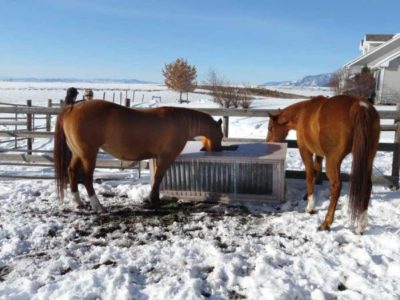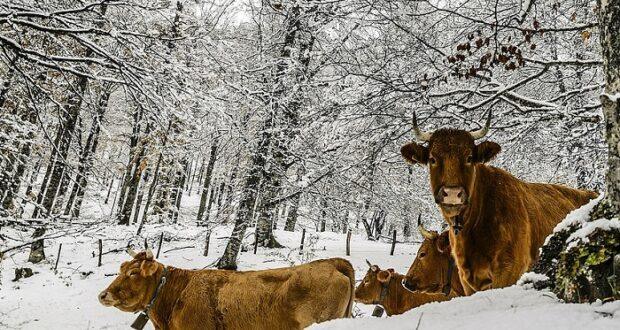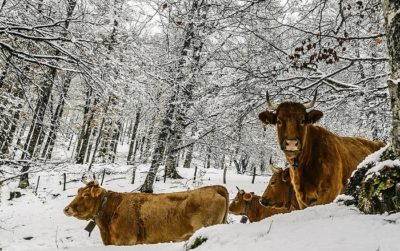|
Listen To The Article |
Winter usually means the end of the growing season, shorter daylight hours, and possibly bitter cold temperatures.
That means your livestock will need to be handled very differently. The preparation leading up to winter will determine how well your livestock come through the winter months.
Preparation is Important
Following are some tips to prepare your livestock and homestead for the cold months ahead.
First, make sure your animals are in the best condition possible going into the winter months. Nothing takes more of a toll on livestock than to enter into the winter in poor condition.
Fall is a time to rid your livestock of internal and external parasites. That will help them gain and maintain their weight during a time when temperatures are lower and fresh green growth is not available. In cold climates, an enormous amount of calories are used simply to maintain body heat.
Get Dependable Backup Power Directly From The Sun
Livestock Need Sufficient Shelter
The next area to look at is your livestock shelter arrangements for the winter. The three winter rules are:
- Keep them dry.
- Keep them free of drafts and wind.
- Provide housing large enough to accommodate all the stock.
Not providing enough space for your livestock can mean injuries from crowding or more submissive animals being forced out in the cold.
Don’t confuse “free of drafts and wind” with ventilation. Any building structure needs to have adequate ventilation to keep air quality acceptable for the animals and avoid moisture problems.
Check buildings for loose or missing roofing, and repair any leaks. Keeping animals dry will go a long way toward keeping them healthy and comfortable.
The best way to cut down on wind chill is to make certain barn openings are on the downwind side of the structure. Know your prevailing winds, and position openings to be the least affected by the wind.

Livestock
Plenty of Clean Bedding
A common mistake is not providing enough bedding material for animals in the winter. It makes no sense to spare bedding while simultaneously feeding more feeds to keep the stock warm and maintain condition. If they are young and growing, it’s even more important.
An easy way to provide solar heat to your livestock housing is by adding some clear panels to the roof. If you have metal roofing, this is accomplished by removing the screws holding on the metal and replacing it with clear sheets of roofing material. This will add extra light and heat during the day that your stock will enjoy.
Fresh Clean Water
The time to check water systems is before the temperatures drop below freezing. Make sure everything is in proper working order and insulate or add heat tape where needed.
Livestock need access to clean water at all times. If they are rushing to get a drink when you break the ice on your water troughs, it’s a sure sign that they aren’t getting enough to drink. Water is the body’s temperature regulation system. Dehydrated stock have a hard time maintaining body heat.
Cold or wet animals eat more feed, have lower immunity, and lose condition during winter months. This can be avoided by making certain they have dry, draft-free housing with plenty of room and bedding for everyone.
Winter can be a trying time for livestock, but following these guidelines will help with creature comfort, and you’ll sleep better at night as the cold winter wind blows outside knowing your livestock are dry and warm.
What advice would you add on keeping livestock warm during the winter? Share your advice in the section below:

